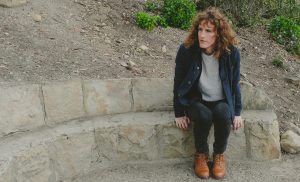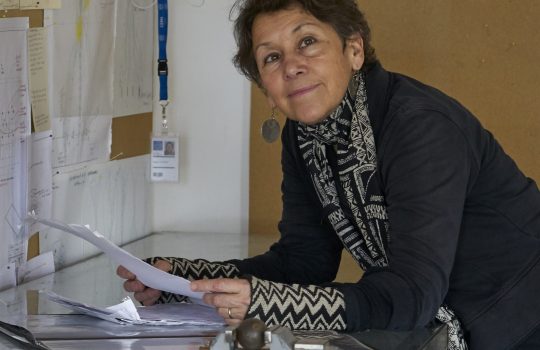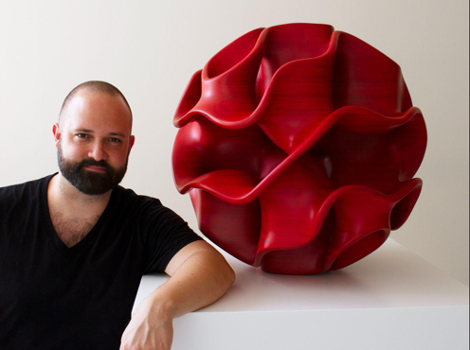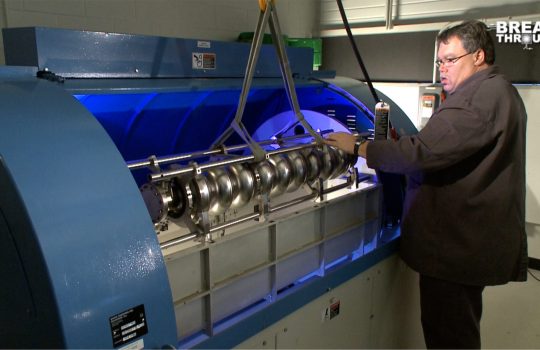
Mare Hirsch has been selected as the 2021-22 Fermilab artist-in-residence. Photo courtesy of Mare Hirsch
The U.S. Department of Energy’s Fermi National Accelerator Laboratory has selected California-based visual artist Mare Hirsch as its 2021-22 artist-in-residence. The program, now in its seventh year, connects physics and art. Hirsch, who uses computer models and coding for her art, will draw on her data visualization background to make Fermilab science more accessible and intriguing to the public.
In the past, she has also illustrated data sets in varied disciplines, including ecology and machine learning.
“The work I do can play a role in communication,” Hirsch said. “And one of the goals of that communication through data visualization is to hopefully broaden the conversation around some of those scientific concepts and bring in some folks who maybe would otherwise not have the experience to see what scientists are working on.”
Hirsch started out as a composer, earning a master’s degree in music from Rice University before transitioning to the visual arts. She is currently pursuing a PhD in media arts and technology from the University of California-Santa Barbara, working on projects that are generative, collaborative, technologically-based and visually interesting.
Collaboration is a huge part of art to Hirsch, who will begin her residency in discussions with Fermilab scientists in a quest for interesting data sets. Hirsch says she’s particularly excited to explore research on what lies beyond the Standard Model of particle physics, scientists’ best theory yet to describe the building blocks of the universe. Results from experiments such as Muon g-2 have hinted at cracks in the Standard Model and the potential for new physics, including undiscovered particles or forces. Hirsch says she likes to work with data that can have broad, provocative implications for a wide range of people.
“It’s much more interesting connecting with something that actually matters to people — whether that’s working with ecologists and climate scientists, where there are big implications for the work they’re doing, or working with physicists, where there are also these really big questions that we’re all grappling with, about our origin and our place in the universe,” Hirsch said. “When there’s a depth to the work, when the data itself and the interactions or the collaborations are coming from a really meaningful field, that’s what I get excited about.”
Georgia Schwender, Fermilab’s art gallery curator and founder of the artist-in-residence program, said Hirsch’s experience at the intersection of art and science made her stand out as a cutting-edge artist.
“She sees the world in a very contemporary light,” Schwender said. “She’s really exploring the ways that coding and art can combine to convey complex topics like science and math. I’m looking forward to seeing how she transforms data from Fermilab.”
Fermilab’s artist-in-residence program began in 2014. The 2020 artists-in-residence, multimedia duo Chris Klapper and Patrick Gallagher, will present their work in February 2022. Alongside Hirsch, Fermilab will also feature its second-ever guest composer, David Biedenbender.
Fermilab is supported by the Office of Science of the U.S. Department of Energy. The Office of Science is the single largest supporter of basic research in the physical sciences in the United States and is working to address some of the most pressing challenges of our time. For more information, visit science.energy.gov.



